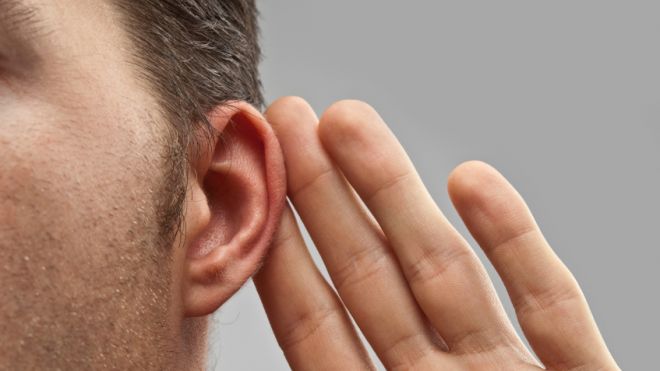
An estimated 26 million Americans between the ages of 20 and 69 have some form of hearing loss due to exposure to loud noise at work or at play. That’s partly because our suburban and urban lifestyle has gotten louder, due to things like city traffic, a screeching subway, a football game, a loud bar or restaurant, or leaf blowers in the suburbs.  Research has also shown that the now ubiquitous practice of listening to music through earphones increases the risk of hearing loss. Aside from damaging hearing, loud noises are also associated with stress and symptoms of stress like hypertension and cardiovascular disease. As the noise level has increased, we’ve grown accustomed to the higher decibels, so it’s become difficult to know what is normal and what is too loud. According to the National Institutes of Health, long or repeated exposure to sounds at or above 85 decibels can cause hearing loss. The louder the sound, the shorter the time period before noise-induced hearing loss can occur. Regular exposure to more than one minute of 110 decibels or more risks permanent hearing loss. Less than 75 decibels is generally considered safe. Now to put that into perspective: Normal conversation is approximately 60 decibels, heavy city traffic can reach 85 decibels, stadium noise can roar to 120 decibels, a rock concert or symphony orchestra can reach 110 decibels, a snowmobile generates 100 decibels, and a movie hovers at 85 – but can have 100 decibel peaks. A good way of gauging high decibels is if you have to raise your voice to be heard by someone sitting or standing nearby; this is not uncommon in noisy restaurants, bars or at a concert. If the noise hurts your ears, it’s also a sign that it’s too loud. To get a more accurate reading on sound, you can download an app that can quickly measure decibels. “If you think something’s loud, you can pick up the phone and see just how loud it is,” said Dr. Annette Hurley, associate professor of communications disorders at Louisiana State University Health Sciences Center.   Walk into a restaurant, quickly test the decibels, and go somewhere else if it registers above 75. If you feel like being an advocate for all patrons, you can bring it to the attention of the restaurant owner, who may be able to lower the decibels simply by turning down the background music. If you’re going to a concert or other noisy venue, take earplugs to dampen the sound. Here are a few apps that Dr. Hurley recommends:  - dB Volume Meter - TooLoud? - deciBel It’s also a good idea to set maximum decibels on your personal listening device. If you’re trying to hear your music in a place that’s already noisy, it’s easy to inadvertently turn up the volume to damaging levels. Make sure it’s set below 85 decibels, recommended Dr. Hurley.Laurie Tarkan is an award-winning health journalist whose work appears in the New York Times, among other national magazines and websites. She has authored several health books, including “Perfect Hormone Balance for Fertility.” Follow her on Twitter and Facebook.source : http://www.foxnews.com/health/2013/06/11/avoid-hearing-loss-check-decibels-before-entering-room/


